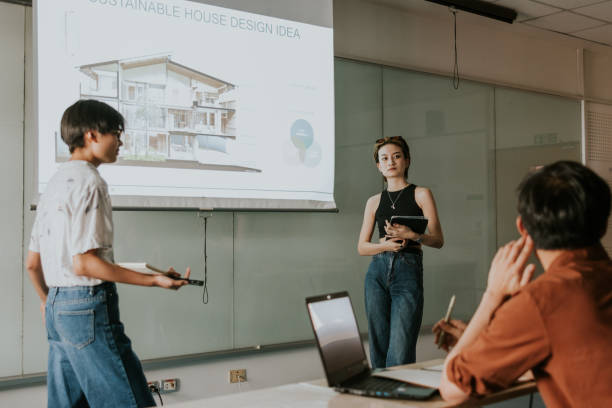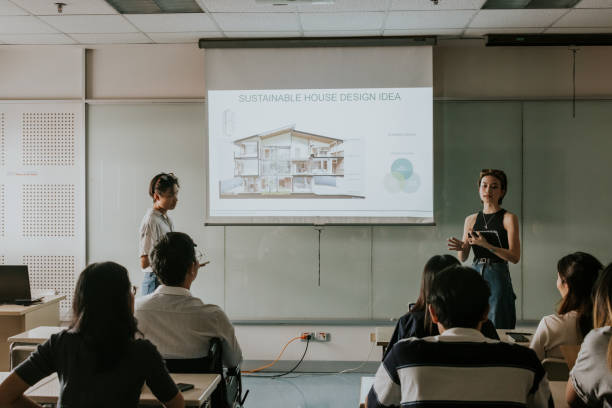The world of design is rapidly changing. Gone are the days when interior designing was simply about aesthetics. Today, the future of design revolves around sustainability, smart technology, and human-centered innovation. If you're planning a career in interior design, it’s crucial to choose a course that doesn't just teach traditional décor—but prepares you for the modern, tech-driven, and eco-conscious world.
In this blog, we explore how interior designing course in India—especially in major cities like Delhi—are integrating future-forward subjects like sustainable design, green materials, and smart home tech. These emerging trends are not just additions; they are reshaping the way interiors are planned, executed, and experienced.
Let’s dive into what future-focused interior design courses should offer—and why enrolling in such a program can set you apart in this competitive and creative field.

? The Evolving Role of an Interior Designer
Today’s interior designer must balance form, function, sustainability, and technology. Clients are no longer satisfied with just a visually appealing home—they want:
Eco-friendly materials
Energy-efficient lighting and HVAC
Smart home automation
Space optimization
Wellness-enhancing interiors
Durable, low-maintenance solutions
To meet these evolving demands, interior design courses are evolving too, offering modules and projects that reflect the challenges and solutions of the 21st century.
? What Future-Focused Interior Design Courses Teach
Here’s what you should expect from modern interior design courses that align with industry innovations.
1. Sustainable & Green Design
Climate change and environmental awareness are transforming how designers think. Courses now teach:
Eco-friendly material selection (bamboo, cork, recycled wood, low-VOC paints)
Energy-efficient layouts that reduce electricity consumption
Passive design strategies for natural light and ventilation
Water-saving plumbing fixtures
Indoor air quality planning
? Many institutes now include modules aligned with LEED and IGBC certifications.
2. Smart Interiors & Automation
The rise of IoT (Internet of Things) has made homes smarter. Interior design courses introduce:
Home automation systems (lighting, climate control, blinds)
Integration of smart devices in kitchens, bathrooms, and entertainment units
Planning for voice assistants like Alexa and Google Home
Digital security and surveillance integration
? Students are trained to work with tech consultants and developers to create smart-ready spaces.
3. Sustainable Furniture Design
Modern courses encourage designing furniture that is:
Modular and multipurpose
Locally sourced and crafted
Upcycled or recyclable
Ergonomic and space-saving
Designers also learn how to collaborate with eco-conscious manufacturers and use digital fabrication tools like CNC cutting and 3D printing.
4. Software-Driven Design
Future designers must be fluent in digital design tools to stay competitive. Courses offer hands-on training in:
| Software | Use Case |
|---|---|
| AutoCAD | 2D Drafting & Floor Plans |
| SketchUp | 3D Visualization |
| Revit (BIM) | Building Information Modeling |
| Photoshop & Illustrator | Moodboards & Presentations |
| V-Ray/Lumion | Photorealistic Rendering |
These tools allow designers to simulate lighting, airflow, space movement, and real-time user experience.
? Top Institutes Offering Future-Ready Interior Design Courses
1. Pearl Academy (Delhi)
Offers a B.Des in Interior and Spatial Design with emphasis on:
Sustainable systems
Environmental psychology
Digital prototyping
2. JD Institute of Fashion Technology
Their diploma and degree programs feature:
Green interior design
Virtual design simulation
Material innovation labs
3. Amity University, Noida
B.Des Interior Design program integrates:
Smart building systems
Environmentally responsible design
Interdisciplinary project work
4. INIFD Delhi
Practical modules in sustainability and software
Mentoring by industry professionals using modern case studies
?️ Project Work & Real-World Exposure
Institutes are also encouraging live projects, where students:
Design eco-friendly interiors for cafes or homes
Work with green architects or NGOs on sustainable housing
Collaborate with tech startups on smart space innovations
Present in design expos focusing on sustainability
This real-world exposure allows students to build portfolios that are aligned with future industry needs.

? Global Trends You’ll Be Trained For
Modern courses don’t just prepare students for India—they make them globally competitive. You’ll learn about:
Global green certifications: LEED, WELL, BREEAM
Design for climate zones: hot-dry, cold-humid, composite
Inclusive design: spaces for the elderly, children, or differently-abled users
Biophilic design: connecting interiors with nature
Circular design: reducing waste by designing for reuse
? Career Opportunities in Future-Focused Interior Design
After completing a modern, tech-forward course, students can pursue roles like:
| Career Path | Focus Area |
|---|---|
| Sustainable Interior Designer | Eco-conscious homes and commercial spaces |
| Smart Home Consultant | Integration of automation and IoT |
| Design Technologist | Use of BIM, VR, and AR in spatial planning |
| Furniture Designer | Sustainable and modular furniture |
| Visual Merchandiser | Tech-integrated retail experiences |
| 3D Interior Visualizer | Realistic space rendering using modern tools |
As the industry grows, hybrid roles that blend interior design with UX, environmental science, and digital fabrication are also emerging.
How to Choose the Right Future-Focused Course
Before enrolling, ask:
❓ Does the syllabus include sustainability and smart systems?
❓ Are software tools like Revit, V-Ray, or Lumion taught hands-on?
❓ Is there access to design labs or material libraries?
❓ Are there workshops with architects, engineers, and tech experts?
❓ Does the course encourage innovation, research, and prototyping?
The best institutes don’t just teach design—they teach you how to think like a problem solver.
✨ Final Thoughts
The future of interior designing course is not just beautiful—it’s smart, sustainable, and impactful. By choosing an interior designing course that blends eco-consciousness with modern technology, you position yourself as a leader in a rapidly evolving industry.

From designing energy-efficient homes to collaborating with tech innovators, your skills will not only shape spaces—but also shape how people live, work, and feel.
So if you’re dreaming of a career in interior design, don’t settle for outdated concepts. Invest in a course that teaches you the design of tomorrow, today.







